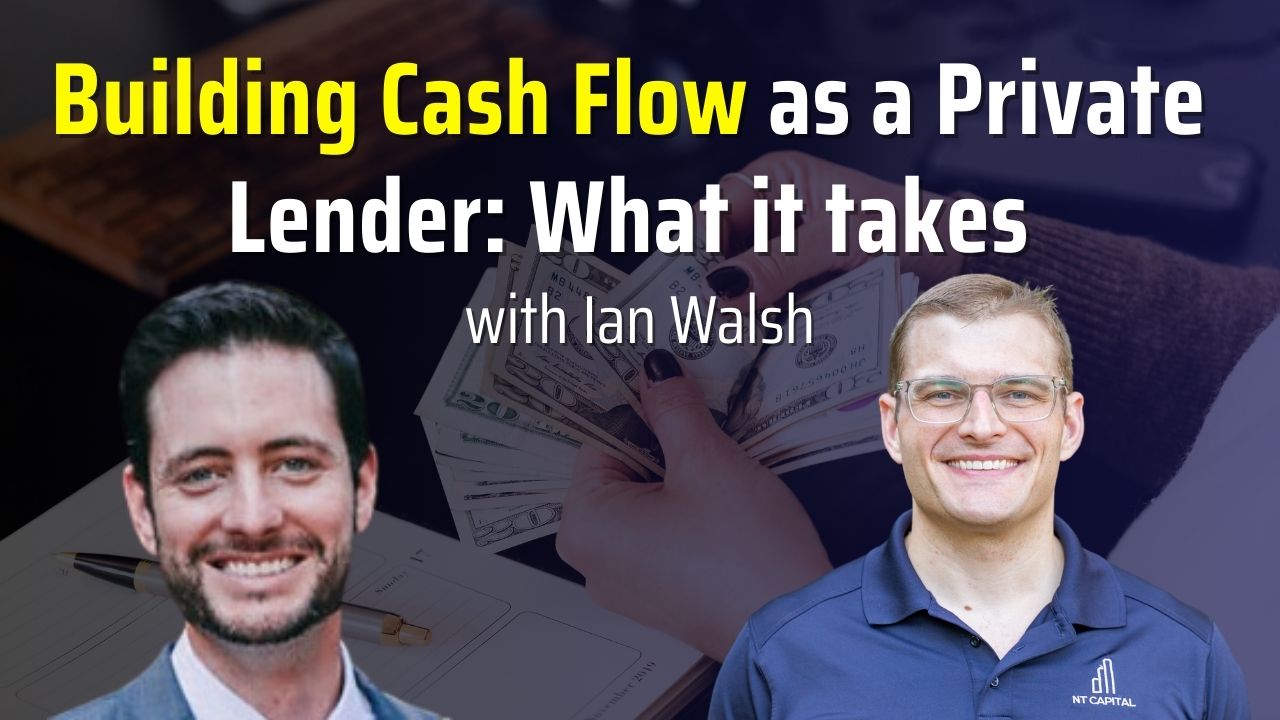
Building Cash Flow as a Private Lender: What it takes with Ian Walsh
Private lending, also known as hard money lending, has become a popular avenue for investors to access funds quickly and easily for real estate transactions. However, the lending market has been impacted by increasing interest rates, resulting in a decrease in transaction volume. In this article, we will explore the insights shared by Ian Walsh, a full-time lender in the real estate space, on how to build passive income through private lending in real estate.
We will discuss the differences between hard money and private money, the state of the lending market, the importance of due diligence, and what to do when a deal goes wrong.
Private Money vs. Hard Money: Understanding the Difference
The terms “private money” and “hard money” are often used interchangeably, but there are subtle differences between the two. Private money refers to funds provided by private individuals who are not bank-funded, while hard money traditionally involves institutionalized lending with bank funding. However, the industry is transitioning towards using the term “private money” for both types of lending.
Private money lenders, like Ian Walsh, focus on the asset and provide funds quickly and easily, while traditional hard money lenders may require more paperwork and time.
The Impact of Increasing Interest Rates on the Lending Market
The lending market has been significantly impacted by increasing interest rates. Over the past decade, low interest rates and money printing led to an influx of Wall Street money into the hard money lending space.
However, as interest rates started to rise, banks became more cautious and reduced their lending, affecting the volume of transactions. Many lenders who relied on volume and lower pricing margins were unable to sustain their businesses, leading to a shift in the market.
The Importance of Patience in the Current Market
Given the current state of the lending market, potential private lenders are advised to exercise patience and wait for the market to stabilize before entering the lending space.
It is crucial to understand that a rising market can make anyone look smart, but it is important to remain humble and always be prepared for a market downturn. Rather than taking unnecessary risks, it is best to wait for the market to bottom out and start rising again before considering becoming a private lender.
The Role of Due Diligence in Private Lending
Due diligence is a critical aspect of private lending. It involves thoroughly analyzing deals, assessing repair budgets, and understanding the borrower’s intentions and capabilities. Ian Walsh emphasizes the importance of experience and repetition in underwriting deals.
Having done thousands of comps and dealt with numerous borrowers, he has developed a keen sense of what works and what doesn’t. By understanding the market and reading people quickly, lenders can make informed decisions and avoid potential pitfalls.
Navigating Troubled Deals and Foreclosure
Inevitably, some deals may go wrong, and it is essential to have a plan in place to handle such situations. Before resorting to foreclosure, lenders should explore alternative options to work out the deal and get it back on track. This may involve open communication with the borrower, renegotiating terms, or finding creative solutions to address any issues.
Foreclosure should be a last resort, as it can be a lengthy and costly process. Maintaining a clean and open relationship with borrowers is crucial to finding the best resolution for both parties.
Conclusion
Building passive income through private lending in real estate can be a lucrative venture, but it requires patience, due diligence, and the ability to navigate potential challenges. The lending market has been impacted by increasing interest rates, resulting in a decrease in transaction volume. Potential private lenders are advised to wait for the market to stabilize before entering the lending space.
Due diligence is crucial in analyzing deals, assessing repair budgets, and understanding the borrower’s intentions and capabilities. In the event of a deal going wrong, open communication with the borrower is key to finding a solution and avoiding foreclosure. By following these guidelines, potential private lenders can build passive income and navigate the real estate lending market successfully.
About our Guest

Thomas Castelli
Ian Walsh started in the real estate business over a decade ago. He built the largest wholesaling company in Philadelphia at the time. He then began Atlas Property Management which was sold to a management company in Philadelphia.
He is currently an active partner in Hard Money Bankers. He has been a part of over 1000 transactions to date and Hard Money Bankers deploys roughly 40M per year currently.





